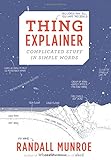
Main Content
What is it and how is it different from essays?
It's an informal piece of writing on any topic. Students can say how they feel about the topic and the teacher need not be as strict on grading. This assignment is great for intermediate levels and up.
The first journal topic can be related to self-introduction such as a favorite thing. It should not be a scary topic for students.
In the directions, include extension questions on the topic to provide a scaffold on how students can add more to their writing. Also, provide guidelines on length of assignment.
When giving feedback, the teacher can respond to parts of the journal like a dialogue with the student. This helps build teacher-student rapport.
Some questions to consider for the teacher:
How many comments to put on each journal? Consider 3-5 comments per student.
How to manage collecting journals for big classes? Stagger the due dates (part of the class turns in one day, the other part turns in another day). Also, use a rubric that assigns points to reflect what is in your instructions.
How to make journal writing more meaningful? Have students submit to a Learning Management System (LMS) like Schoology and have other students read and provide comments to their peers.
WIMB
Emily: “David and Goliath” by Malcolm Gladwell (http://gladwell.com/david-and-goliath/)
Roger: “The Sketchnote Handbook” by Mike Rohde (http://rohdesign.com/handbook)













